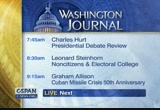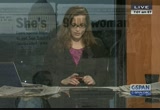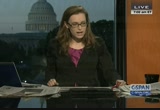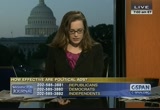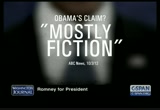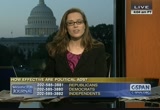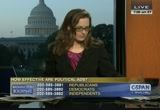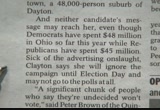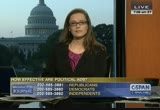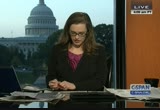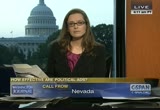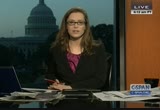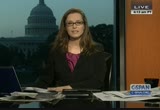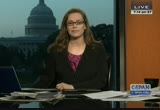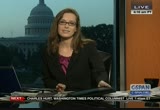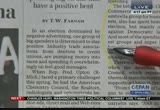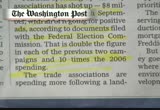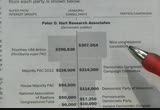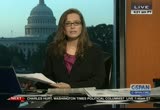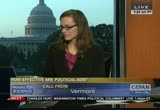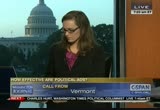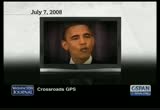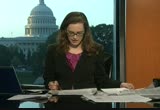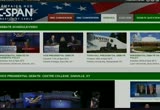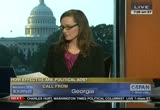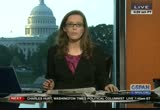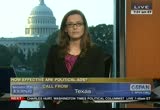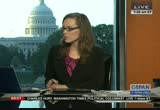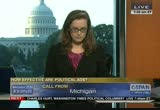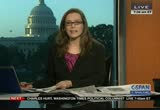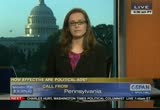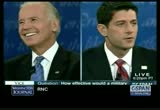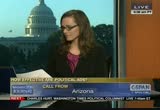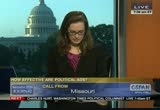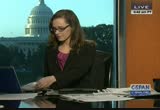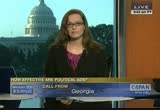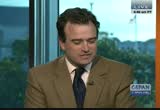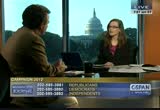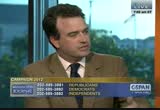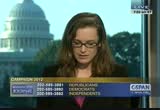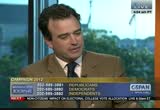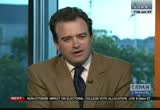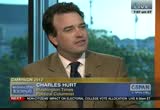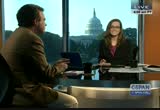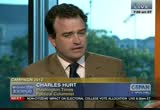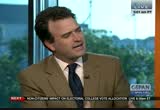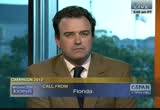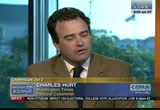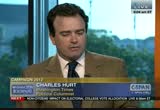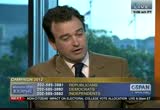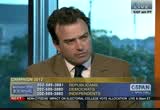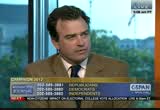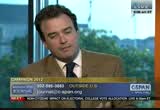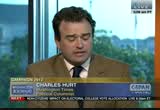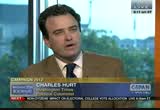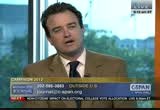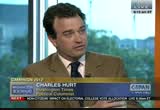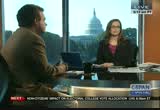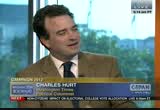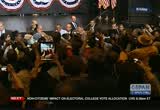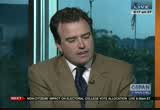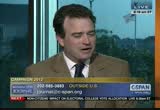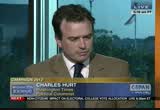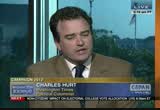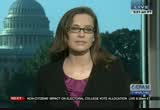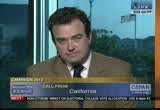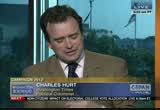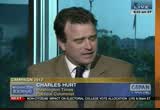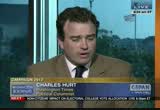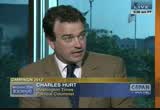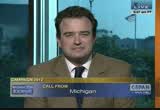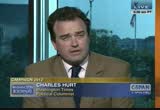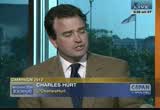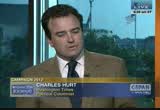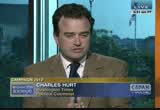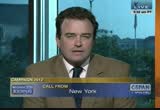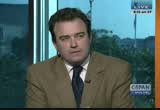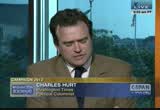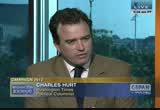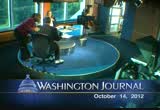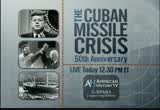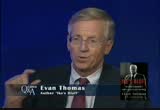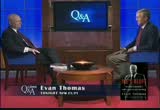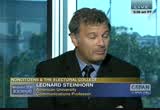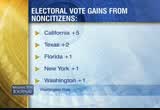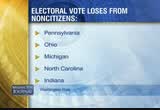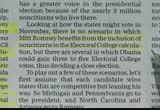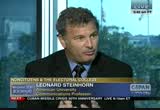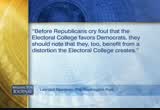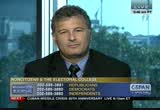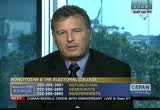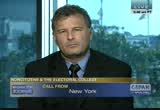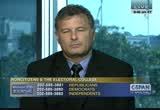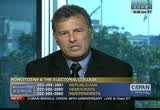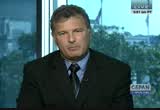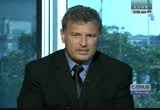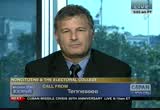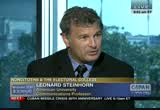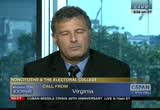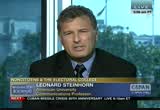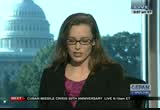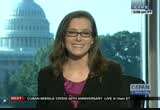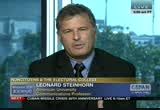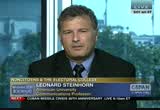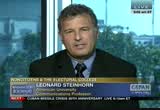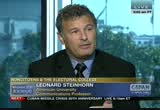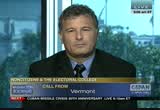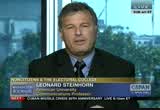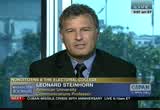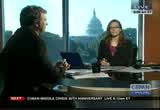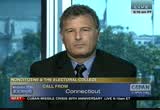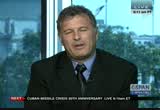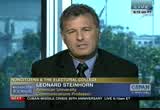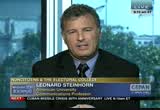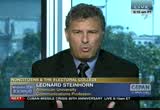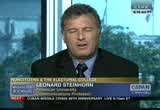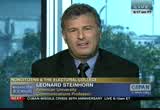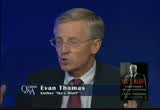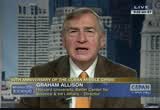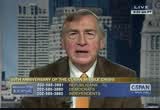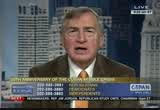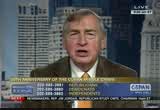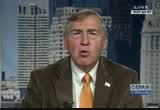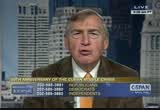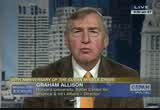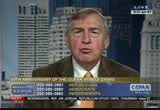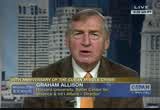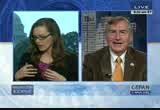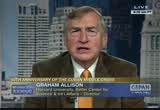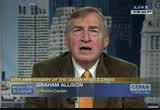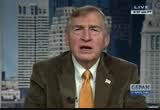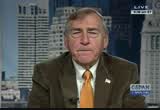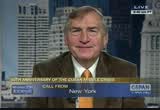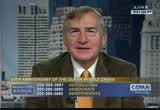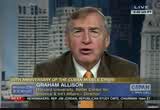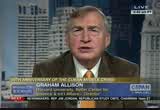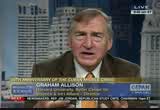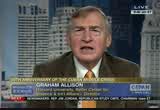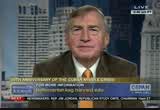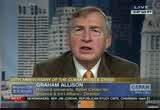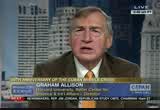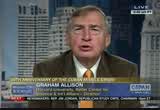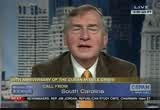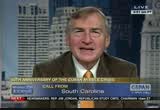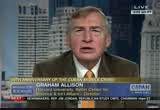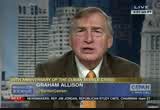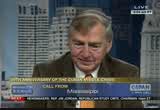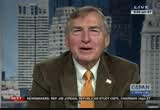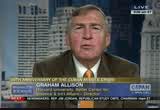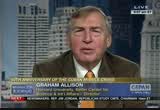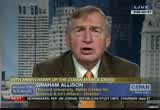tv Washington Journal CSPAN October 14, 2012 7:00am-10:00am EDT
7:00 am
7:01 am
you can also join the conversation on the social media. come your question this morning is, how effective our political ads? meet the woman who might decide whether president obama or mitt romney will be the next president of the united states. she is the mother of three and a resident of ohio. she is more than a voter in the biggest battleground state. she is undecided about whom to support.
7:02 am
although most of her friends have made up their minds, i just do not know yet. she and her fellow undecideds are the most precious commodity in american politics. the obama and romney campaigns are courting them on an historic scale. let's take a look at one of the ad on the airwaves right now. this one is obama for america.
7:03 am
7:04 am
you could join that conversation on facebook by looking for cspan. let's watch a romney for president ed -- ad- >> even the obama campaign admitted it was not true. >> it will be near $5 trillion dollars. >> obama plan -- $4 trillion more in taxes of the middle class. host: the romney campaign ad. let's go to the falcons from deerfield beach, fla. on our democrats line.
7:05 am
how effective do think political ads are? caller: i think they are affected. the reason they've run negative ads because they work. i hope the voters in this country will realize that the supreme court was wrong. they said free speech was good for america but women have a few billionaires' putting all these ads on, it seems that the public is smarter than that. i think free speech is good when it is not used properly and poor people cannot afford to put ads on and that means the country will be rolled and the election will be bought by billionaires' and i think that is wrong. hopefully, the voters will see that. host: are you seeing a lot of ads in florida? caller:yes. host they speak to you? caller:no, they don't speak to
7:06 am
me but they are speaking to people who are independent of all the facts of the race like people voting republican and the people who are democrats. it is the people in the middle, the independents, that have to get educated on the way they vote. and not be swayed by these negative ads and all the money put into these ads. hopefully, they will study the issues and realize the average person out there is supported by the democrats and not the rich republicans. host: let's hear from a republican from california, good morning. how affective do think political ads are? caller: think it is about finding a balance between the pacs and the candidates. i have a lot of friends to think the negative ads go too far.
7:07 am
when they actually attack the candidate with the facts, i think they are effected. host: looking back at this "new york daily news" story - she's a single mother and one of the undecided voters. neil, fort lauderdale, independent college. caller: i'm not really an independent in view of the silly stuff going on. i fancied myself as a political
7:08 am
agnostic. i believe that political campaign ads are effective if one has been in bed. -- inept. one can clearly know when one is being duped. the lady called from florida rick berg -- referred to independents lacking education. there are a lot of independents out there. the reason we are independent is because we will make up our own minds. i thank you for your time. host: about undecided voters? caller: i think the undecided voters are probably those who are dealing with the daily day- to-day stresses and they don't really understand or believe which candidate is going to get
7:09 am
us up that mountain. it is a very difficult process between the social reform and birth control issues. it is a mes/. for the first seven by 65 years, i am on the fence. host: what will it take to push you over one way or another? caller: an increase in my social security check, no, really, believability. i would like to look into the eyes of the candidate and sense the truth or the fall said. it is something did that is a visceral thing. both men are very intelligent, very competent and capable of doing the right thing. they are performing very well but don't tell me, show me. that is basically all i can say. host: thank you for your call. this is a story in "the new york
7:11 am
looking at ohio voters this morning because the contest there is deemed to be tight and critical to both campaigns. let's hear from west point, neb., on on our republican line. caller: the obama had that you read the beginning of the show -- [inaudible] [indiscernible] it's called double taxation. host: let's take a look at another piece from priority usa, >> take away his toys and he
7:12 am
will play with a stick. take away their bikes, and will find a way to get where they are going. if you take away early childhood education, and cut college aid for middle-class families, they will not go far yet that is exactly what mitt romney wants to do to pay for it to order $50,000 tax break for multimillionaires. if he wins, the middle class loses. host: that is one of the super- pacs that was formed. an's go to centreville, va., independent caller. what do you think about political ads. caller: i don't think the presidential ones are very effective. most people know who they will vote for. the big bird, was pretty funny.
7:13 am
-- comment was pretty funny. i think all local and state political ads are much more effective. host: other any candidates whose local ads in virginia that were affected? caller: right now, i'm not going off the political ads. i am one tried to look at their records and look at the issues. i'm still trying to figure out who a lot of them are. i think the political ads for state and local are more affected than than presidential adds. people are pretty sure who they will already vote for. host: a comment from twitter --
7:14 am
let's look in the ad for may mitt romney pac - >> for 8% unemployment is fine and millions of americans have simply given up, where our children will grow up under the weight of crushing debt in a world where america is no longer the leader and we are told we are going forward even as we fall further behind. this is the new normal. this is president obama's economy. demand better, restore our future. host:pro-romney pac ad. we have a democrat next. are you with us?
7:15 am
you are on the air. caller: i think one of the problems is that what -- a lot of the as to not tell us the ingredients that these politicians are offering. what is inside the economic package? what is really inside the international relations package? in other words, they don't -- really tell us what the effect is or will be upon american society during the next four years. if i buy a product, i want to know what the physical effect will be. if i vote for a politician, i should know how their programs will really be set up. it should be consistent. but they are with she washy and go back and forth. host: thank you for sharing.
7:16 am
you can join the facebook conversation -- john atlanta, georgia, republican, good morning. caller: i think they ads work pretty good. they would do better if they have more substance. i consider myself a 47 percenter but obama says he will take care of the poor but why did the first money out of the stimulus go to nancy pelosi's swamp rats?
7:17 am
7:18 am
7:20 am
we are talking about political ads and how effective you think they are. next is utica, mich., independent of voter. caller: good morning. these super packs doing these ads, they don't have your best interests, they have their own agenda. a lot of them are just half truths. it is a big turn off. just as irritating is the phone solicitors with a tape-recorded and for their candidate.
7:21 am
in michigan, when you vote for a primary, you have to either be republican or democrat. i am an independent so i voted on the republican ticket for the primary. i get messages for the republican party practically every day on my fun. it is so irritating. that is my comment. host: is that enough to sway your vote? would it discourage you from picking a candidate or party? caller: i believe based on the debates whether i will vote for somebody or not. are you talking about the fun part or the political ads? host: let's take both. caller: it does sway me. these people run the super pacs must think we are really -- really stupid running these after it and not telling the whole story.
7:22 am
hanno they have an agenda. that is why they are spending -- i know that they have an agenda. that is why they're spending millions of dollars. both republicans and democrats are doing it now. the american people are smarter than that, that is how i feel. host: susan, vt., democrats line, good morning. caller: i think the ads are mostly effective for people who are not up on politics. people who follow politics realize that they are lying for the most part. they're not telling us anything. i think we should do away with political ads. i think the political campaign season should be six weeks like in england. the money spent in advertising could be spent on paying down the deficit or college loans or
7:23 am
what ever things we are that we need in this country. i am originally from europe. i am an immigrant who was a u.s. citizen. in europe, people talk about politics and are educated about in the family. here, people are apathetic about politics. they take everything for granted because they do not realize that problems could result of the don't pay attention. whether there should be 8 for the line for people who are undecided, they are not undecided, they don't know what is going on. i saw a news item right after the presidential debate on c- span, they were doing a focus group on the undecideds. it turns out that one of the women in the focus group was an actress who was paid to be in the focus group.
7:24 am
it just shows the extent to which people who are running once did do people into going for -- want to do people into going for what they what. -- want to dupe people into going for what they want. host: here is a comment on twitter -- here is another bad from crossroads from the karl rove group. >> obama promised -- if your family is making
7:25 am
$250,000 per year, my plan will not raise your taxes. >> on true, middle-class americans face a huge impact obama claims mitt romney will raise middle-class taxes which is also not true. host: that is an example of a super-pac ad. tuesday night is another debate and it will be at hofstra university in new york. "the baltimore sun" is this story.
7:26 am
7:27 am
america's role in the world, afghanistan and pakistan cspan has a debate hub on our website, c-span.org/debates. there is also complementary video and information about politics and ways you can engage through social media. you can find archival footage and watch debates alive. once the debate is over, you can find individual questions and answers isolated by specific topics. we are talking about how effective political ads are this morning. this is our independent line. what do you think about political ads?
7:28 am
caller: i think you're last independent caller was right, their knees to meet more truth in advertising. the obama as you showed us at the beginning talked-about romney thinking it is ok to pay 40%, -- 14%. i love how they cut up that ad. it says they are not being completely truthful. i'm a registered independent and i have voted democratic and republican. i wish they would be more truthful. host: on twitter -- inj " the washington post" -
7:29 am
7:30 am
7:31 am
and if you go on your computer, there are workers with all kinds of signs for their jobs are being outsourced. they make sensros. the last day of the plant is supposed to operate is november 5, the day before the election. they say this will be a devastating loss to this community. romney says he has no power to intervene but out that he had no power to intervene with a company he has been associated with all of his life? host: do you think this should be in campaign ads? caller: you don't hear about because you only listen to one channel like fox news. they will not support that.
7:32 am
three women were arrested friday for trying to sit down in front of the trucks that were transporting the equipment to be shipped to china. they want the chinese workers to come in and the american workers to train them. host: we are talking about how effective political ads are. what do think of the tone overall? on facebook --
7:33 am
eugene, republican, what do you think? caller: when you watch these ads, if you go back and compare what they are saying today to what they said in the last election, you get a more true picture of their beliefs. they do not change radically like some do. that we get a true picture of what they are going to do. the caller from georgia was talking about capital gains tax where you are taxed twice. that is entirely false. if you invest -- you earn $1 million this year and you invest it, you have already paid taxes on that -- taxes on that money and the only tax on capital gains you pay is earned. host: do you think this issue comes up enough in the ads?
7:34 am
caller: nom, it's not. host: do you think that adds should have a different focus? caller: i think they should focus on what will happen now. they should go back and see what they have done and what they say they will do now. host: stick a look at another at ad - >> we the people, the middle class to move this country for, work hard, raise families and keep america strong. amid run the budget plan will hurt the image it -- the middle class, raising taxes on the average family by up to $2,000 like giving a tax break of $250,000 to multimillionaire's. does and mitt romney understand that we cannot rebuild america by tearing down the middle class? host: one of the pro- obama ads
7:35 am
- pennsylvania on our republican line, good morning. caller: good morning, a most interesting discussion. i think the ads reflect a lack of character in this country. the founding fathers said that the republic system of government demands at this and the morals. that takes education. our educational system is leading the demise of our country. especially in a christian school in -- 17 of the original signers were cemetery students. -- or seminary students.
7:36 am
host: do you want to see a different town in the ads? caller: absolutely, the founding fathers, and some of them were deists like jefferson and franklin, they came to the conclusion when they chose books for pennsylvania and virginia and students, the first book they both put in was the bible. the truth must be known. if there is no truth, there is only manipulation. host: from twitter -- let's take a look at an ad by the republican national committee. >> is never too early to speak
7:37 am
out for our values. the room and it romney i know does not want to raise taxes on middle-class. >> you both saw met -- benjamin netanyahu hold up a picture of obama with a red line through it. >> in spite of their opposition, they have given 20 waivers to the opposition. iran is four years cause it to a nuclear weapon. they certainly inherited that situation but we are going in the wrong direction. job growth in september this -- august in than a was end august.
7:38 am
>> the republican national committee is responsible for the content of this advertising. host: al affected our political ads? independent line, good morning. caller: i would like to comment on this. when the guy said he was an agnostic, that makes him a libertarian, i think. spending $1 billion to become president, there is something wrong with the system in this country. it does not take much to look at it and realized that the system has been blocked. we need to take a good look at a third party and make sure the choices we make reflect that we're not interested in what the good old boys have to say any more in washington.
7:39 am
there is 1 million -- $1 billion to become president and that is ridiculous. of a's too much difference. we need to look at it. i think the american people well. i really think we need a third party. it seems that the system is broke. they are spending too much money on both sides. host: here is a treat - missouri, democrat line, good morning. caller: thank you for cspan. i finally got through after calling for years.
7:40 am
i think the political ads probably don't affect people who were already registered by the people are not well informed about politics, i am a c-span junkie and i'm pretty up on that but if you're not well informed on you can see the as which are so distorted with untruths. people don't really get a full view of what a person's background is. i don't think that really affect the people who are already affiliated but it affects the people who have regard unpolitic. i could see where could sway them. do you like the way the democratic ads are sounding? ♪ caller: some of them i do and
7:41 am
some of them i don't. i agree more with the democratic line than republicans. host: let's look at obama tv ads -- >> victims, dependent, that is what mitt romney called 47% of americans including people on medicare. what about his plan for you? mitt romney would replace guaranteed benefit with a voucher system. seniors could pay $6,000 more per year. you are no victim. you earn your benefits. don't let mitt romney take them away. host: that is a pro-obama campaign ads. on facebook --
7:42 am
7:43 am
totalitarian system. host: from twitter -- atlanta, ga., independent college. caller: this is a good discussion. i agree with the caller from arizona. he pointed out citizens united which has poisoned the campaigns this year. it has really made it become a campaign where the highest bidder is to have the biggest voice. hopefully it will come down to people making up their own minds. what would be nice now without these negative ads, is if they went ahead and took a positive message.
7:44 am
obama has a lot of paul's of the ec can point out. host: here's a comment from twitter -- thank you for all your calls. coming up next, we'll continue talking about politics and campaign 2012 with charles hurt from "the washington times." later we will examine the impact of non-citizens on the electoral politics. let's take a look last night at "status saturday night live." >> come to the first and only vice presidential debate of 2012. [applause] i am martha raddatz of abc news and honored to be here a moderate tonight's debate. we have a wonderful audience and
7:45 am
it should be lively evening right now, we welcome vice president joe biden and congressman paul ryan. [applause] welcome, gentlemen. before we begin, a reminder that your performance tonight is extremely unlikely to affect the outcome of the election. just have fun with it. congressman ryan, we begin with your opening statement. >> thank you, first of all, i want to thank center college for hosting us this evening. >> oh, boy, here we go. >> president obama made a promise four years ago. >> [laughter] >> that he would bring unemployment down below 6%. he said by the end of his first term he would cut the deficit in half. >> ohhh! >> yet he still does not put a
7:46 am
credible plan on the table had to deal with the debt crisis. >> i'm sorry, this is a bunch of malarkey. >> does that mean? >> its irish. >> no, iris is i smack the dumb luck of your face. host: that was the "saturday night live"skits last night. we all know -- we will now go to seize than radio. >> thank you. today and the network tv talk shows covered topics include the vice-presidential debate, the presidential campaign, the lame- duck congress and the latest attack on the u.s. consulate in libya. c-span will re-air is program starting at noon. among the guests on "meet the press" will be republican
7:47 am
governor bob mcdonnell of virginia. at 1:00 p.m., the guests include ohio republican senator rob portman and a delaware attorney general and some of the vice president and martha raddatz of abc news. at 2:00 p.m., it is "fox news sunday." the guests will be david axelrod enron gillespie. "state of the union" as at 3:00. she will have robert gibbs and a senior strategist and grover norquist. at 4:00 p.m.,"face the nation "talked about the attack on the u.s. consulate in libya.
7:48 am
the sunday network talk shows, re-airing on cspan radio are brought to you as a public service by the networks and cspan and they begin at noon. you can listen to them all on cspan radio on 90.1 in the washington area and nationwide on xm radio. you could even go on line to cspan radio.oprg. >> one of the things that i hope is that my father taught me to value education. he was such a tyrant's about it. he often threatens to send me back to mexico if i did not do well in school. that was a scary threats.
7:49 am
i did not want to go back to mexico. i wanted to make him proud. another thing i felt was that because i begged him to bring me, i felt that i owed him that. i felt that i never wanted my father to say i should not have brought you. >> winner of the american book award and international latino book award and growing up an illegal alien in los angeles tonight at 8:00 eastern. >> "washington journal"continue as -- host: the political columnist ed "the washington times." in his column this morning, he writes that this coming week may live up to the characterization that every week is a make or break a week of the campaign after labor day. do you think this week is a big
7:50 am
win for the candidates? guest: in washington again breathless about things like debates. i think it is important. foreign policy is an area that people have to prove that they can meet a certain threshold and are not completely out of their depth in terms of dealing with a lot of tricky situations around the globe. this will be the man from the opportunity to prove he can deal with the powder keg in the middle east. based on what we have seen so far with the first debate, i feel pretty confident that may be the kind of thing where women get to it, our will say he comported himself pretty well in
7:51 am
the first debate. it is bound to be very interesting on many levels. i suspect we will go through it and everyone will feel like you got two people a year. noem are due to a garbage. -- both of home are dealing with garbage. host: there's a town hall debate at hofstra university and a final debate on foreign policy. as the candidates still the town hall format, what are you watching for them to do? guest: i think that format will be pretty tricky for mid romney. president obama is very fluid and that at this year. he is very good at empathizing with voters and filling their
7:52 am
paying. that is not something that mitt romney was ever good at. he is more robotic. he is less able to reach out like that. i think that will be interesting. there is a focus on the economy in the first debate when it romney did well. i will be watching him talk about things beyond just the thought. the romney campaign says he is in -- has been involved in tons of town halls. guest: usually campaigns tried to downplay that. everybody is pleasantly surprised. we know that any doubt the
7:53 am
present obama is very good that. things have become so highly partisan and are still a last couple of years. it is hard to see how much these things have an impact? i would argue that the first of a dead considerable impact. host: 1 on the columnists at "the boston globe" had this piece -- is he talking to the right or the center right now? guest: remarkably, i would argue that he has stuck more closely to the right to than i think many people were predicting.
7:54 am
many people thought as soon as he got through the primary, he would immediately tack back towards the middle. he really has not on many key issues. he has stuck closely to exactly what he said during the primary. with picking his running mate, paul ryan, conservatives or very happy with that. he has held every position and management -- imaginable on important issues from when he was governor of massachusetts.
7:55 am
i think he sticks with his position. we have seen a whirling dervish of his positions. i think that is tied to the position that he is seeking which is different. early in the primary, i assumed he would change his position day to day. i think it is more broad than that. politicians like to say that they are evolving their position. mitt romney sat down last week and they talked about abortion.
7:56 am
>> there is no legislation regarding abortion that i am familiar with. i would reinstate the mexico city policy which is that foreign aid dollars from the united states would not be used to carry out abortions and other countries. host: that is audio from his sit-down with the "desk moines register"board. >> his campaign has been very disciplined lately. that was not the right place. the problem and should have not said under any circumstances. what i think it means is that he
7:57 am
picked paul ryan as the biggest issue. he said he will put every bit of his efforts into that. once that is fixed, you can turn to other issues. that's probably a view that is shared by the vast majority of americans. you don't want to deal with abortion, that you are making that a secondary issue. for voters, that is a primary issue. it is about whether people live or die. i was a very violence led community.
7:58 am
-- they have a very pro-life community. host: is the headline from "politico." let's go to the phones. san marino, california, republican. caller: thank you for cspan. i want to get your impression over the whole thing that we have been told our last, how many months that the race is locked in and there is this tie #independence who will sway the one where another. i was impressed that the first debate caused an impressive swing in the polls.
7:59 am
do you think the race is all that locked in? i think there is a lot in play. >> that is a great question. i have a fairly different opinion than most of my colleagues in this town. i think it is somewhat blocked in of the jewish public opinion poll and ask people their vote for, that's a complicated question because there are issues answering questions and some people want to please people of other people want to not to please people.
8:00 am
president obama is heading into tough headwinds. people sort of dial in at later and later date. of course, it -- a poll will tell you that it is neck-and- neck. also pollsters' make more money. when people to in, they tend to make up their mind. i don't think there is a large group of super-intelligent independences who are paying attention to every word and thinking that they still are not made up my their minds. they know who they will vote
8:01 am
for. host: our guest at a column one month ago before the first presidential debate. if you go inside of that, it says -- gues guest: 0 or 3 poles come up every day and it seemed like that is all we talk about. if the election were held to more, who would you vote for? if the election were held tomorrow, we would be surprised. host: hear from jacksonville, fla., democrat line.
8:02 am
caller: good morning to both of you. i am 76 years old and i have been a member of aarp since i was 65 and never have seen so clogged election. [inaudible] some of these people are ultra pro-obama. i went to a meeting and there was an aarp person there. they had a slide show and it took controversy -- contributions for building out at the obama put it blaze in
8:03 am
florida. after was over, they asked. one last question -- i quit watching fox news but are you still one of their softball superstars? guest: i go on occasionally. guest: i still play sometimes. aarp has become -- it has become a lightning rod issue for them, the campaign. it is not clear how it will cut. john mccain did very well.
8:04 am
he did well among voters in that category a year ago. president obama has gone all in trying to win over that period i would argue he has deployed some scare tactics. both sides have done this to some degree to scare our elderly voters about what will happen to medicare and social security. for every one of those i have heard, i have also heard accounts of people going to meetings like this. i would be surprised -- with a
8:05 am
look at the election, you ask yourself how many people voted for john mccain last time who will vote for president obama this time. outside of examples like that, i do not know i have met anybody who falls into that category. the people who voted for obama last time who will vote for romney this time, those people are not that hard to find. host: he used to work at the washington post. he covered the political rise of senator john and works and his political aspirations. he worked for the detroit news for six years. comments are coming in about the comments mitt romney made to the register about abortion.
8:06 am
one says it was a generous assessment. others would have said he lied. no abortion legislation should be. news for those liberals concerned they would be made illegal. is he demoting some who will not come out on election day? guest: his connection to them is tenuous. in his view has evolved 180 degrees for 1 u.s. governor of massachusetts. i think there is something else going on. president obama has managed to alienate those voters. it reminds me of one president
8:07 am
clinton was running for reelection. i am telling my kids you are not supposed to use this word, but they hated him. it blinded them. . they won't up making some decisions. bob dole campaign was hexed from the start. -- they wound up making some bad decisions. i think they are more motivated in their desire to see president obama removed. i think they have managed to do a better job of focusing their energy in the faa's the way. -- in a positive way. given his quirks and inability to relate to a earthlings, as it
8:08 am
often seems like he is trying to do, he should not be doing well. given the fact we have the bad economy, crushing debt, and problems abroad, he is coming off as a tactician who says he will fix these problems. he is doing well. people on the far right are happy with that. host: william joins us from texas. caller: i am so happy to get through. this is my first time. if mitt romney were president and he went to war, would you have your kids go to war with him? guest: i think mitt romney will
8:09 am
have to make that case and prove he is able to make large decisions on that level of politics. he is growing questions about what the administration knew and the decisions they made about security in benghazi and afterwards to insist it was not a terrorist action. i think all of that will give mitt romney a strong opening. it remains to be seen. based on his performance in the first debate talking about the
8:10 am
economy, i suspect he will do well. host: are you still with us? caller: in 1968, he went to paris, france. i do not consider him a leader. guest: it was for a peace corps type thing the mormon church does. you could probably dig up things i have written making fun of anyone who goes to live in paris. he has done a good job of defending that and making the argument he was doing a terrible thing and fulfilling a public service requirement of the mormon church. that speaks to another thing.
8:11 am
during the primary, and was highly skeptical -- i was highly skeptical he would be able to get beyond his mormon and some -- mormonism with the christian voters. it is remarkable how he has managed to make it not be an issue. a lot of it has to do with the business of explaining not the differences between warm innocent and the other christian faith, but all of the stories that have come out about his charity work and the generosity, and things like that, which would include the mission work in paris. i think it always -- allays the fears some people have about him being part of a cultish religion
8:12 am
when it is just part of being in the christian religion. host: the legal attack on the diplomatic mission in libya has created an unexpected casualty. the white house hopes president obama will remain unscathed on foreign policy issues in the presidential race. guest: it is especially difficult. one thing president obama ram on fort years ago is he had a unique ability to reach out to the muslim world and make things better. i believe that. based on speeches he has given
8:13 am
and some of the stagecraft suggesting president obama has moved the u.s. away from israel, it has opened a new rift. the situation in libya, because we're dealing with islamic extremists who committed a terrorist attack and assassinated our ambassador, it speaks to the larger issue of whether president obama will make things better in the middle east. i would argue he has not. i would argue he made things worse. anyone would agree things are not better their than before he took office.
8:14 am
debbie.t's go to caller: i am from michigan. i appreciate your comment about a earthlings. i am one of those earthlings. i do not understand why none of the media has picked up on what romney said in the debate when president obama was talking about tax breaks for moving overseas. mitt romney said he needed to get a new accountant. like the man needs another tax break. that is all i got today. thank you for taking my call. guest: that was one of my favorite parts of the first debate. romney is not good at the jocular line. he was in michigan when he
8:15 am
observed the trees are the right height. it was bizarre. i think he was kidding and tried to make small talk. that nervousness has turned out to cut in his favor of a bit. -- that nerdiness has turned out to cut in his favor a bit. the line about needing a new account month was an occasion when it worked. host: i was going to ask charles if he has thought about what obama has come over the last four years. the attorney general was questioned. he was questioned with lies. you have not said anything about his lies and the attorney general. what is going on with the
8:16 am
thought? guest: the botched done run into mexico -- done run into mexico is a fascinating issue. literally people have died and been killed with these guns moved across the border in hopes of tracking down these gunrunners. host: operation fast and furious. guest: the investigation -- it has been a disaster. it is up to the department of justice to make sure the investigations did not get to the bottom of it. i have always been skeptical about how much -- i think it
8:17 am
enrages the already enraged. i do not think it is an issue that will unify people further on the left to be against president obama, certainly not to the degree the economy does. if you do not have a job or your neighbor does not, that is a unifying issue, unlike cost and furious. listen to more comments. this is a conversation last week. they talk to robin nation's debt and deficit. let's hear what mitt romney had to say. [video clip] >> the approach is similar to bowles-simpson. bowles-simpson said to lower the
8:18 am
rate to make it possible for small businesses to grow, but we will also limit exemptions. they put up different alternatives. i am open to the ideas they put out in bowles-simpson, that kind of approach. host: mitt romney open to bowles-simpson. guest: anytime you have a blue ribbon commission, especially if it is dealing with massive rearrangement of how the government spends money, it will be a tricky sort of thing for a politician before an election. host: is it a dangerous issue when trying to garner tea party support? guest: i think this survey on his part. -- i think it is savvy on his
8:19 am
part. the bowles-simpson commission was a blue panel. president obama called together. they came up with a lot of hard decisions nobody liked. then he dismissed it and went on his way. i think it could be tricky. i think it is savvy in one respect. mitt romney is running on the idea he will make tough decisions, that he is not going to skip, on major decisions that turn the giant battleships in a different direction so we're not here -- heading towards insolvency. i think it is smart because the resort is needed. i think people are convinced major thrust of decisions are going to have to be made --
8:20 am
major drastic decisions are going to have to be made. they need to know they are voting for a guy who can make them as opposed to a guy people feel confident is not making them. host: they write in and say the ones who lost are the american people. we get played by the two-party system the bankers own. it is a tea party hashtag. guest: this time of year watching baseball, no matter who's commercial comes up, they drive you crazy. it would be smart if somebody would come up with silent campaign ads, something not nearly as annoying that made you want to pull your hair out. it could be something you are in love with, but the onslaught of them, and the joint mail that
8:21 am
comes in every day through the post office. -- and the junk mail that comes in every day through the post office. i heard that the post office averted bankruptcy by couple months because of the influx of junk mail. that says something in terms of everything in terms of the federal government. it drives people insane. i think everyone will be glad when it is over. host: vita, independent caller, california. caller: what drives me crazy is we have people on tv like that gentleman just fine -- justifying everything mitt romney says or everything that happens in the media against president obama without having the true facts. when you listen to c-span or
8:22 am
watch the index, it was so disrespectful and discussed in to watch grown men who are supposed to be addressing the country who do not know how each government function operates. we have embassies across the world and that you can hold one person accountable in the government for everything that happens. that is stock -- not democracy. for you to justify mitt romney's put fox -- flip flops and how he will beat a president and what he will stand for, to justify everything about calling him on it is wrong.
8:23 am
you are a journalist. you are in the media. you are putting out information to the people. you should be held accountable for your actions, for what you say and do. host: tell us about your column and respond to the comments. guest: the name of my column is "the nuclear option" for a strange reason. it is supposed to be cut and dried, and more outraged perspective on things. sometimes amazed slipover into being disrespectful. i do not mean to. i think if you go back and look at the columns i have written the past couple of years abt mitt romney, i do not think you
8:24 am
would find i have spent a lot of time sticking up for him. although i do think he has been running a fairly big campaign the last couple months. the fact he managed to get through the primary still amazes me. but he did finally get through it and i think is running a good campaign. it is my opinion, which is particularly scary to think about. a lot of people, my wife to begin with, and say i do not deserve an opinion. but anyway, it is all my opinion. host: vita was talking about the facts and her concerns about mitt romney. guest: you are dealing with the candidate who was governor of massachusetts, a fairly liberal state. when he left office, he had done
8:25 am
what a lot of people wanted him to do. turning from massachusetts to running for president as a republican, he will have to change a lot of positions, so he did. it is worth noting it is not like he is constantly changing his positions every two weeks. he really has kind of changed them all and seems to be sticking with them. the inartful comments he made in des moines did not signal to make a change in position. he was saying what a huge number of conservatives have been whispering about. you are not supposed to say it,
8:26 am
about the need to deal with the fiscal crisis before you do anything else. that was stupid of him to say that, but i do not think it reveals a particular change in position. it is the one most prevalent that i hear among conservatives, even social conservatives that realized most important thing, the most important social progress for people is to have a good economy. without that, and specifically for america to have a great economy, without that, the world loses a very important place that believes in individual rights and freedom. host: maverick writes that romney's positions have been evolving.
8:27 am
guest: i would say he is a flipper more than a flip flopper. he should stick with that. host: henry is a democratic caller from michigan. caller: i am calling from port huron. this is disgusting. charles is a political hack and always will be. mitt romney lied in the debate. the only truthful thing he said in the entire debate was he had five sons who live. the truth does not fall far from the tree. mitt romney should not be doing as well as he is. the only reason is because we have a bunch of right-wing white supremacist confederates, not conservatives, confederates who
8:28 am
only want to see the black man out of office. this man has done his very level best to make this country -- charlie hurtet respond. guest: that is an astonishing and sad thing to hear. i covered president obama four years ago and was one of those reporters -- i believe to a lot of what he said. i thought he was a very promising new kind of figure who changed the tone of washington. he did not change the tone of washington. he did not make good on any of the promises he made coming into the white house. also remember for the first two years of his presidency, he had
8:29 am
a huge majority in the house of democrats. he had a huge majority in the senate. at one point, it was even filibuster-proof. did he cut spending? no. he did not do any of these things. for the following two years, he still had a majority in the senate. things have gotten tougher for him in the house, but it is not like -- he ran everything. he ran the whole town. he could have gotten things done. the knock against him mitt romney made about how he put all his eggs into obamacare instead of fixing other things is a smart avenue. for people to turn this into race, i would argue those who think this is about race and people not liking somebody because of the color of their
8:30 am
skin, i think those people should look in the mirror and ask themselves who is being racist, who is the one trying to bully an election based on the color of someone's skin. host: one of your recent columns suggest mitt romney should only run for one term. you are encouraged him to make that announcement. you think that would be a game changes. do you still want him to do that? of guest: the reason president obama walked away from simpson- bowles is that politicians do not like to up said the equal. the truth of the matter is that some difficult decisions have to get made. best chance, i
8:31 am
think, not for winning but for fixing things is to simply come in and there's evidence that suggests that he would be good at that turning it around. he has saved jobs and turn companies around. if he were to come in and spend four years of making those decisions, whether it is adopting simpson-bowles or whatever but make the turn towards insolvency so we were moving away from insolvency and so that our social programs were heading away from insolvency, i think he could get it done. he would even walk away with a sterling record. host: 1 last caller from
8:32 am
buffalo, new york, on the republican line. caller: i never bought the kool- aid. i never took a sip of it regarding obama. we will talk about what's going on with the presidential election, but in my opinion obama has never been challenged by anyone. you can talk about him fighting hillary and everything, but they polled backed like nobody's business. now it's calling someone a racist? my point is this. obama has never been challenged. i personally believe we will see a meltdown of this man. look at when he tries to defend what happened in been gauzy. that is a disgusting -- benghazi. it's a disgusting mess.
8:33 am
charlie, please. i know someone will call me a racist, but this is not normal. and we have 2000 in afghanistan and i do not know why. osama bin laden has been dead for year or two. i don't know. this seemed to be really, now that we've killed him. host: to get a response and some historical perspective on afghanistan. guest: is interesting that the caller said he did not drink the too late. he obviously did not vote for him first time and will not vote for him this time. the election will turn with the people who did vote for a bomb of this time and i expect it will go that way. in terms of his debate
8:34 am
performance the other day, the sad thing is trying to watch and defend his last four years. he was very good talking about what he was going to do before he came in. he did a very poor job defending what he has done. he was so on magical. -- unmagical. there was no hint of 2008 obama on the debate stage the other night. there was no hint of the great speaker we saw four years ago. in terms of afghanistan, -- host: he seemed rather angry. guest: i would imagine a lot of the people who supported president bush in 2004 against john kerry probably do not have
8:35 am
a huge beef with the way president obama has executed the war on terror in afghanistan. in terms of the drone strikes and going after assaad bin laden and the overwhelming desire to get out of all of these places, i do not think that will be a big issue in the election. host: some of your most recent columns, "obama the debator," and introducing to america the real barack obama. you can find them on the washington times website. charles hurt, they give for joining us. next, how non-citizens could influence the vote of campaign 2012 in the electoral college with leonard steinhorn of
8:36 am
american university. later ron, we look at the 50th university of the cuban missile crisis. we will be right back. >> this government has maintained the closest surveillance of the soviet military buildup on the island of cuba. within the last week, unmistakable evidence has established the fact that a series of offensive missile sites are now in preparation on
8:37 am
the imprisoned island. the purpose of these bases can be none other than to provide a nuclear strike capability against the western hemisphere. >> do you, ambassador, deny that the u.s.s.r. has based and is facing intermediate range missiles and sites in cuba? yes or no? do not wait for that. >> 13 days in october 1962. liber from the jfk presidential museum on the 50th anniversary of the cuban missile crisis starting at 12:30 p.m. eastern on american history tv, on- span3. of >> the thing about eisenhower is that he would never tell anybody if he was going to use nuclear weapons. why is this important? in the 1950's when nuclear
8:38 am
weapons were pretty new, we threatened to use them in various stages, but nobody ever knew whether he was serious or not, whether he meant it. to be credible as a deterrent, you have to be credible and he never told anybody. i was fascinated by that notion. talk about the loneliness of command. what could be a greater command decision than that? here was a guy from the invasion of world war ii who is now president with an even greater level of responsibility when nuclear weapons are new. not just one or two, but we have a whole arsenal. are we going to use them or not? ike use them as a tool basically to avoid any war. >> evan thomas on "ike's
8:39 am
bluff." >> washington journal continues. host: leonard steinhorn is a key indications professor at american university. they give birth coming in. there is a recent peace with ais headline, "you're not citizen, but you still could tilt the election." guest: it's a quirk of the constitution. the way the electra colleges determined is through the senses. in the constitution, the census says to count all the people. that means they're not discounting citizens but all the non-citizens, legal and authorized immigrants in this country. the number of electoral college votes certain states get because
8:40 am
california has a very large number of immigrants and non- citizens, they get extra electoral college votes. there are five states that benefit. california, texas, florida, washington, and new york. that is over what it would be if we were counting citizens only. 10 states do not benefit. recalculating it would change the calculus. >> how does this work out? how does this play out? it could appear you were talking about non-citizens actually being able to vote, but you're not talking about that. you're talking about the way the map is calculated. >> basically by being there in a particular state that goes one way or another the candidate who wins all those electoral college votes benefits.
8:41 am
in effect, just by being there, like woody allen said, it just showing up, california gets five extra electoral college votes, texas gets two, etc. basically, people have no right to vote and they are potentially determining the election of our president. host: california gets five electoral college votes, texas two, and then florida, new york and washington with the one. guest: if you look at the states, i did not come up with a single calculation in which governor romney could benefit. there are a few instances where the president could benefit from additional three, four, five electoral votes. if the president wins 267-271,
8:42 am
if we did citizens only and recalculated, it possibly could mean governor romney 279, obama 268,. it could have an impact on close elections. host: here are the states that lose a vote. pennsylvania, ohio, michigan, north carolina, iowa, louisiana, oklahoma, and montana. guest: the census does not ask about citizenship. then a lot of people may not cooperate with the senses. you need to have everybody counted in the senses. they need that information. if you are a community, you need to know how many schools to build. if you need to know where to
8:43 am
locate your storage you are a business. we do not want to lose them permission. where we're getting the alternative information is through a census called the american community surveys and they asked about citizenship there. host: our guest, leonard steinhorn, writes last week in a column -- guest: exactly. that's the trouble with this. we should take that off the table. this is about how we vote on an elected president. the electoral college is very flawed. it doesn't represent one-person, one-vote.
8:44 am
wyoming gets three electoral college votes for every -- in california, they get one vote fro every 600,000. combined they get one extra vote. it turns a national election into an election for battleground states. we do not have an election beyond eight, nine, 10 states. people who do not have the right to vote to determine who are president might be. host: you write the way they calculate non-citizens may have an advantage for president obama in your opinion. you give more context writing --
8:45 am
wint: let's say republicans 28 and the democrats won 22 plus the district of columbia. that is a 56-46 advantage on the part of the republicans and therefore they would gain 10 electoral votes given that senators are lumped in. wyoming with one congressperson gets three electoral college votes because of the two senators. host: if you like to talk about electoral math and talk about how this affects the election, here are the numbers to call.
8:46 am
let's hear from jamie in pennsylvania on their democrats line. good morning. caller: how are you today? i 100% agree with the professor. i do not agree with giving election -- extra electron college votes to states. how in god's good name do they do this? normally we get to vote on things like this. i did not see where we elected to go ahead and give these states more electoral college votes. it does not seem right. guest: it goes back to the creation of constitution and what the framers had envisioned. they did not fully trust the american people to make wise decisions. they felt the people would not have enough information to give informed consent so they created this superstructure of an electoral college that took the boat away from a direct popular vote of the people.
8:47 am
also, the electoral college has a more unsavory a legacy in a sense that a number of the southern states did not want to be smothered in the national popular vote and therefore they got through the electoral college more say who became the president simply because they were able to give those who were enslaved, no votes, no rights 3/5 of a person when counted in the census. when the 17th amendment was put in place which basically overturn the state legislature deciding who became a senator, many americans do not know this, but we used to select based on what the state legislatures said. they changed it to say they get elected by direct popular vote. they did not take it to the next step of electing a president that way and i think it's very unfortunate. host: leonard steinhorn is a
8:48 am
communications professor at american university. let's go to bernadette in buffalo, new york. hello. concerned about the electoral vote. i'm wondering about these generations trying to protect the traditions of america that created this in the first place but now the votes are not counted for a sitting president very liberal taking us in a different direction than america was traditionally voted on. new immigrants, all americans, no americans, all of our rights need to be free and based on saving that because the electoral votes in california where many of the immigrants are than they did not understand
8:49 am
the constitution will vote for president obama because he thinks he is for them. i think the republicans are very sensitive to immigrants. i'm sorry about the separation because truly republicans care about all people, immigrants, blacks, white, the disabled. i want to keep america as we are, safe and strong. thank you very much, god bless america. guest: represents traditional american values is in the eye of the beholder. abraham lincoln was considered outside the mainstream by many americans. franklin roosevelt was as well as ronald reagan. they fit within a growing and emerging american consensus. to say the president does, respect traditional values is to
8:50 am
disrespect the number of people who voted him in office. we are a democracy. that's what it's about. everyone should have their voice. i wrote this got to give a voice to 10 battlegrounds states but to give that voice to all- american is so they could have a say and candidates could make the appeal and talk about the traditions, the changes they want to make for all of the american people. right now, people in the three largest cities of these countries rarely get a visit by presidential candidate to talk about urban issues or poverty. the only time they go there is to raise money. there is something wrong with that and it does not reflect the concerns and values of the american people. host: lot of focus on ohio in the news. here is a piece in "the washington post."
8:51 am
also come up pictures of congressman ryan, the vice presidential nominee, in youngstown, ohio. on twitter, writing in. his guest: point is what i was getting at just before. if we did not have this electoral college system, the candidates would be going to cities and different parts of the country. they would not be taking 40 visits to ohio. it would be certainly going to ohio, but they would be going to new york city, los angeles, chicago, san antonio, houston. those people are as american as anyone else yet they never hear from the candid its unless they're trying to raise money from the billionaires' in those communities. host: last week, this was on the
8:52 am
cover. republicans to cities, drop dead. they do not count any more, at least in national republican politics, talking about democrats choosing cities to visit or fund-raising ventures, not necessarily to campaign. guest: it's unfortunate. one can argue some of the major problems we have relate to the poverty that is located in a lot of these inner cities. if we do not have a political system that encourages our presidential candidates to go in and discuss those issues, then we're doing ourselves a disservice. the electoral college fundamentally distort top people campaign. host: antioch, tenn., bruce is an independent scholar. caller: have listened for years and this is a first-time caller. a couple of comments. arizona tries to enforce their
8:53 am
immigration laws and the u.s. government and is up suing them because of it. i think it's obvious that obama opposes any immigration laws and it helps the democratic party. this gentleman makes a good case for that. as for the traditional values, obama and his ilk believe they are against basically what i grew up with over the years. i think the lady was correct. thank you. host: leonard steinhorn, dot let's be clear about what you're talking about in this headline. "you are not a citizen, but you still might help the election." are you talking about non- citizens casting votes? guest: election fraud is a non- issue. this is not something that is relevant. all of the stat's going after election fraud in many ways,
8:54 am
they're doing that to suppress the vote of certain people they do not one voting. one big irony is florida, going through a statewide persia, -- purge, they're benefiting from having non-citizens in their state. it's ironic that they are benefiting from them when they're trying to encourage -- remove them from the voting rolls. there's no evidence of voter fraud. when the bush administration looked at non-citizens voting, out of 300 million votes, they were able to get 83 indictments. that is not statistically significant. alexandria host:, va., on the democratic line. good morning. caller: i would like to ask a question.
8:55 am
[indiscernible] host: are you asking whether or not this is the first time the electoral college map has been this way? guest: non-citizens have been accounted for years. they are a part of the senses. they definitely influence every election how the electoral college's allocated. crunching some numbers for the 2000 and 1990 census and it is still tilted towards the democrats. this is not about non-citizens and immigrants. people have to feel far more comfortable with the fact that the president or governor romney both due respect the idea that america is a plural nation, a nation from one of many.
8:56 am
those were about traditional values or immigrants coming in, let's get over it. we are a nation of immigrants. this is how citizenship and the right to vote is being diluted by the electoral college system. i did not blame the non- citizens. i put the onus on the electoral college. host: would you structured differently? would you use the electoral college at all? guest: personally, i would not. i would have a direct election and let the people have an equal voice. a voter in new york city or san antonio should be of equal weight to a voter in wyoming or montana. as i said now, you have one electorate for every 190,000 people in wyoming but one a lot for it for every 680,000 people in california. it's unfair. tore's a proposal out there
8:57 am
circumvent the constitutional election. what they're trying to do is to get enough states to equal 270 electoral college votes to say we will give all of our votes to the winner of the popular vote in this country. that would avoid those problems and not force us into some messy constitutional amendment process. host: on friday, from george washington university, we will get his take on the electoral college. leonard steinhorn, this map was created for "the washington post." "a different view of the electoral college." it shows the current electoral calculations but you use these numbers to show how things would change if non-citizens were not included. we could see which states would be winners and which would lose
8:58 am
some power. the 10 states that would gain votes include missouri, iowa, pennsylvania. states that would lose votes would be texas, california, new york, washington. >> it could have a profound shift. in a close election, this could be decisive. pretty much, should we have our presidential elections limited to those who vote? i did not have a problem with that. i do not have a problem with including non-citizens in how we allocate congressional district. take the premise that there should be no taxation without representation. therefore, if you do not allow non-citizens in the calculus of how congressional districts are formed, they should not be taxed. you do not want to distinguish between citizens and non- citizens in a community. that's a different issue than how we elect our presidents.
8:59 am
republican host: caller from massachusetts. caller: i would like to thank your guest for pointing out a problem with the system. i was not aware of that. if we got rid of the electoral college, we would have the heavily populated areas of the country, the east and west coast, which are still primarily to the left running the show. people in the midwest which are, let's say, less dense, they would be run over by these folks. by trying to correct the problem of illegals being counted by using the electoral college to do that, you're throwing out the baby with the bath water. guest: under the electoral college, the south determined
9:00 am
what the rest of the country would be doing. you had a solid block of southern states. the bottom line is it is not about states, coasts, the midwest, the south or southwest. it is about people as individuals testing equal balance. someone living in an apartment in new york does not necessarily have the same views as someone living next door. they should be treated equally. it is about democracy that treats all of us equally. we should get away from the idea it will favor some states over others. it will give a voice to people equally. television is also a great equalizer, as is the internet. even the smallest towns can be connected to what the candidates are saying. the way we have it now, sometimes the candidates go to those small towns to appeal to 500 voters that could make a difference in a small stake but neglect a new york city and the
9:01 am
10 million voters living there. there are distortions that take place. small and rural states gain great power in the senate. the senate this proportionally validates the power of small states. california with 37 million people get to the senators. wyoming with five and a 70,000 people -- 570,000 people get two senators as well. host: she writes the electoral college is as outdated as whale oil. guest: people have that opportunity to become informed citizens. everybody should be treated equally. let's not distort it through the electoral college.
9:02 am
host: tim joins us now. caller: how does the non-citizen thing work? if you are not a citizen, wouldn't it be stupid to let them vote? guest: they are not actually voting. california has 5 million plus 9- citizens. many are immigrants illegally here. they are counted in the census. the census is the foundation for which we apportioned senate seats and electoral college votes. the non-citizens are not going to the ballot box. david be foolish to try to vote. that would be a felony and they would be kicked out of the country. they are not going to the ballot box. because they are there in states that vote a certain way, they
9:03 am
benefit from having those people inflate their electoral college votes. host: leonard steinhorn did some math-crunching to learn what he has learned. the census does not ask if people are here legally or illegally. guest: the census includes everybody. it wants everybody here to be counted. there are good reasons. you want communities to have the proper information to build schools. you want to be able to have social services. we need to know that to be able to allocate federal dollars to help communities deal with the burden of having people less well off in their committees. businesses thrive on this information. they know where to put stores and how to count inventory.
9:04 am
that is based on information from the senses. a lot of people benefit from having the census as is. this is how we allocate congressional districts and representation. we do not want to divide district based on who should be part of the representation system and who should not. all of us are here. everyone deserves representation. communities where there more immigrants deserve to have the voice in congress. that is very important. we do not want to tax people not represented. if we do not count them and tax them, that may violate some principles of our country. there are reasons to count -- citizens in the census. that does not mean we should give them a disproportionate voice and he becomes the president. caller: it seems the desk and a
9:05 am
lot of the callers are missing the point. they were going for a republic. they were warning against democracy which york guest speaks eloquently about. a democracy according to court marks -- karl marx is the road to socialism. we should be reversing the 17th amendment so the senators go back to being the ambassadors of the states envisioned. there are a lot of mistakes. this is just another. think republic. that is what we are and why we have survived as long as we have survived. guest: our system of government is complex. the founders sought as checks and balances, a separation of powers. that is why we have three branches of government.
9:06 am
they did not want is accumulating in any one source. the founders also have problems in the constitution. they did not outlaw slavery in the constitution. things change over time. the founders were concerned voters would not have the information to make informed decisions on the presidency. that has changed. we are not living in the 18th- century. the 17th amendment which allowed for the direct election of senators was a strike on behalf of giving voice to the people who had more information than ever before. i think we need to take the next step and trust the american people. you have all of these presidential candidates saying you have to trust people, and yet they do not want to give the most important voice to people, that is the ability to elect a president in a direct popular vote. host: the overthrow of the
9:07 am
electoral college has long been the agenda of the left wing. without the mainstream media, -- with the help of the mainstream media, they would always win the popular vote gue. guest: conservatives would probably benefit from getting rid of the electoral college as well. if there were a margin on behalf of president obama, when i did the calculation, if you did it based on the citizens, you have a president romney and not a president obama. citizens should unite and free ourselves from this anachronism that does not apply to a modern democracy. other countries elected by popular vote. the question is, why are we the
9:08 am
out liar? should we have a system that rewards potentially non- citizens in the vote? that is a distortion. that is not consistent with us being in republic or what the founders wanted. it is a distortion of how we elect the president. host: leonard steinhorn is in a skillet professor of history. he teaches political communication, media studies, and the modern presidency in recent american history. he is the founding editor of panditw -- punditwire.com. he spent 15 years as a political consultant and speechwriter before getting into the professor business. republican caller, mike.
9:09 am
caller: good morning. i disagree with going to the popular vote and changing the electoral college. there is a movement in connecticut to change the electoral college and have it based more on the popular vote. i am looking at an article. you are quoted. i believe it is aimed at the great unwashed that did not go to harvard. americans have a lot of opinions but do not always have the facts to back them up. i picked a particular quote
9:10 am
because it is a complex subject you are talking about changing to the popular vote. if you have someone for keeping it the way it is who went to a car wreck might be able to articulate it better than i could. you are a very liberal person. i do not mean that to be derogatory. i disagree with you. americans have a lot of opinions with political ignorance. i am sure the new democrat, you support public education. host: we will let leonard steinhorn respond to your comments. as a republican, are you concerned president obama and the democrats could get more of the electoral votes because of the way non-citizens are included? caller: i think if this were based on the popular vote, the
9:11 am
democrats would push for that because it benefits them. president obama is going on the view talking about how he is eye candy for the women. host: can you respond to this particular issue? caller: i think it would benefit democrats greatly. that is where he is pushing for it. host: is pushing to change it. are you concerned about this particular issue? caller: yes. guest: americans could do a lot better across the board having opinions based on knowledge rather than just feeling or biases or political affiliations. everyone needs to broaden out. you can point out president obama going on the view. you might not point out the fact that paul ryan lifts weights. there are equal opportunity panderers in both parties.
9:12 am
let's be honest about that. if we go on the assumption that americans do not always act on the knowledge available to them, then why should those who do not act on the knowledge available in the rural states have more say than those in the urban states? as americans, we should all be equal in our voice. i do not have a problem with the idea of equality. one of the of the things our candidates are to do is educate and not pander. i would love to see candidates in which they are drilling down to the issues and asking people to do what you are doing, it to google things. not necessarily to google things for a gotcha but so that it educates you of a particular subject. that is something we all have to do as americans and i regret we do not do more of.
9:13 am
host: michael in new york, democrats line. caller: it seems individuals and states rights versus nationalism that motivated the founding fathers in the design process where the electoral college was established. we have changed dramatically in the last couple of hundred years. i would like to comment on states' rights versus nationalism. guest: there is a balancing every era between what the federal government and states do. if we go back to the time when the electoral college was created, it was created to project -- protect certain states enslaving people. those states wanted those
9:14 am
enslaved to count as one person in the census. those who opposed slavery did not want them counted because they felt the slave states would gain extra power in congress and the electoral college. that is where the 3/5 compromise came up. the electoral college was built in part on slavery. that is not something we should be living within the 21st century." host: another michael joins us, this one from london, england. caller: i am the author of a book called "u.s. constitution for dummies." in my book, i dealt with the way nebraska and maine have corrected the problem you are talking about by splitting their vote potentially in an election. it does not mean the winner always takes all in both states. nebraska did split their votes
9:15 am
in favor of mccain in the 2008 presidential election. if other states want the same way, and there's nothing to stop them, the problem you have highlighted could be alleviated to some extent. guest: it can be alleviated. it would bring tim kaine down to the congressional district level. -- it would bring campaigning down to the congressional district level. it might bring it to more communities than no. there's also the distortion in the electoral college that nebraska and gains two additional votes it would not have if it were directly proportional to the population of the country. part of the problem with the electoral college is it is not just based on the number of representatives a state has been those states then get two additional electoral college
9:16 am
votes based on the senate seat. host: says it encourages the development of a two party system. guest: if there were a need for third-party candidates, i do not know that we should have a structure that inhibits that. we have seen where third-party candidates have tipped or could have tipped an election. go back to 1968 when george wallace ran for president. he got a southern states. give him a few more states, and perhaps neither of the other candidates would have gotten over the 270 marks. then we would have thrown the election into the house of rep..
9:17 am
california has one vote in that choice of the president and so does wyoming. each state delegation would vote. that state would have one particular vote. that is not a great way to be elected president either. i believe our elections should reflect the voices of the people. if the parties are unable to reflect those voices, there may be a compelling reason to have a third party. the republican party was a third party in the 1850's. look at where they are now. host: we will keep talking about the electoral college on "washington journal" as we can down election 2012. our guest, leonard steinhorn, is a communicant -- communications professor. he wrote this piece looking at
9:18 am
the math behind the electoral college. we appreciate your time. next, graham allison from harvard university. the 50th university of the cuban missile crisis. we will talk about that in a moment. here are the latest headlines from c-span radio. >> we will hear the latest headlines on the tv talk shows. topics include the presidential campaign, the lame-duck congress, and taxes, and the latest on the attack on the u.s. consulate in libya. c-span reairs the programs. the democratic atlantic mayor and the nbc news special correspondent tom brokaw. "this week."s
9:19 am
chris00, fox news sunday's wallace sits down with david .xelrod and ed gillespie "state of the new" follows at 3:00. guests include robert gibbs and bill burton. grover norquist, president of americans for tax reform. bob schieffer talks about the attack on the u.s. consulate in libya was senator lindsey graham. the house oversight chairman and the ranking democratic member of the committee. the sending network talk shows reairing on c-span real are
9:20 am
brought to you as a public service by the networks and c- span. at 1:00, "this week." at 3:00 , "state of the union." you can listen to them all on c- span radio. you can listen on your phone or go online to c-spanradio.org. >> eisenhower would never tell anybody if he were going to use nuclear weapons. why is this important? in the 1950's when nuclear weapons were new and we had threatened to use them, but nobody ever knew if he was serious or not.
9:21 am
to be credible as a deterrent, you have to be credible. ike never told anybody. talk about the loneliness of command. the use of nuclear weapons, what could be a greater command decision and that? he liberated europe. now he is president and has an even greater level of responsibility when nuclear weapons are new. the soviets are getting them. we have got them. cache.uilding a large are we going to use these or not? he embraced them as a tool. >> that is tonight at 8:00 on c- span. "washington journal" continues.
9:22 am
host: dr. graham allison is the director of the bell for center at harvard university. he joins us from boston to talk about the 50th anniversary of the cuban missile crisis. remind us about those days in october 50 years ago. guest: thank you for having me on. october 1962, this is what historians agree was the most dangerous moment in recorded human history. president kennedy said to his brother in the middle of the crisis he thought the chances of four or between one in three and even. a nuclear war at that time could have been the death of a couple million people. it is october 15, 1962. a u.s. spy plane flies over, and
9:23 am
finds the soviet union attempting to sneak nuclear missiles into cuba, something they said they would not do. kennedy and his closest colleagues meet at the executive committee of the national security council. he chooses to announce to the world the u.s. has discovered the soviet union in the middle of this activity and to impose a blockade. the tensions mount. kennedy and khrushchev stood are about to eyeball. on october 22, kennedy comes up with a remarkable final offer. on october 28, sunday, khrushchev announces the missiles will be withdrawn. in 13 days, the world rushed to the edge of nuclear war. if it occurred, it would have meant the death of 100 million americans and more russians and
9:24 am
europeans. host:, to this was happening before the public eye and how much the sign -- how much of this was happening before the public and how much behind the scenes? guest: long before kennedy was aware of it, the soviets were installing these missiles in that is the decision khrushchev had taken in the spring of 1962. kennedy became aware on october 16. he then had a week of secret, private deliberations to figure out what to do. it is interesting to compare it to the world today. in general, most in washington would imagine if something like this were to be discovered of such proportions, maybe it would be in 48 hours or 72 hours. the idea of a week of private
9:25 am
deliberations almost seems antique. if kennedy had to choose in the first 48 hours, there is no question he would have gone with an air strike on cuba followed by invasion. what he would have discovered is that unbeknownst to him, a soviet troops in cuba with the missiles there were in stalin had brought with them 100 tactical nuclear weapons kennedy did not know were there. those weapons would have been used against the invading american troops. that is one of the trails to what would have been a nuclear war. the idea of having time to deliberate and have initial judgment, look at the evidence and think harder.
9:26 am
kennedy was able to think down each of these paths. he knew at the end of it was mushroom clouds over american cities. the fact he had the time to deliberate and changes minds and for people to disagree was crucial to crisis management in that case. to whatever extent that has been lost in the to liberty processes of government today is to our impoverishment. host: how was the blockade used? guest: the blockade was installed october 22. it was a great speech that will get played more than once in the weeks ahead.
9:27 am
you can go to the website we put up at belfercenter.org. there is a collection of things you can see with lessons and links to the secret tapes kennedy made of the deliberations which raise questions about the ethics abouof that. there is the opportunity to be a fly on the wall listening to the choices that could lead to nuclear war. he announced the blockade. it goes into operation. the naval blockade of cuba prevent the shipment of new missiles. the problem is there are already missiles and nuclear warheads in cuba. when kennedy announces this, khrushchev rushes to complete these so they would be ready to fire against american cities.
9:28 am
as the tension mounts over the course of weeks, finally you get to this saturday, october 22. if you were picking a single day as the most dangerous day in history, that was it. he comes to the meeting with his advisers in the morning. he is informed by u.s. spy plane has been shot down. he has given previously standing orders for air force operations that if a plane is shot down, the response is to destroy the facilities on the ground attack. otherwise, they will attack the next plane. that standing order is interrupted. he says, let me have more time to think about this.
9:29 am
he is then in formed another one is flying over the soviet union. it got off track from alaska. it is flying over the soviet union in a manner that could appear to khrushchev, and did appear to khrushchev, like a last minute look at targets we were going to attack. he is feeling things are getting out of control. in the debate with his advisers, only to the options are presented to him. attack the missiles in cuba now to prevent them from becoming ready to fire against american cities or alternatively acquiesce to the fact khrushchev has succeeded, that there are strategic missiles in cuba, and he will be emboldened to take action against berlin. he is damned if he does or does
9:30 am
not. he thinks about each option. they get down to nuclear war. what if i acquiesced to the missiles in cuba? then khrushchev will have succeeded you promised in private he would not do. this fellow will be emboldened to act next month. he said he would resolve the berlin crisis in berlin. in berlin, khrushchev held all the cards. berlin was a free city an enclave in the middle of soviet- occupied east germany. they could close it at any point. the u.s. was committed to defending berlin up to and including nuclear war. he was damned if he did or did not.
9:31 am
his advisers were unable to come up with other options. in the last minute in the evening, kennedy came up with a third option, one that he personally would have rejected a week earlier. it was an ugly option in his view. but nonetheless was an option that succeeded in resolving the conflict. the option consisted of three components. a public deal, a private ultimatum, and a secret sweetener. a public deal was khrushchev announced his withdrawal of missiles in cuba. kennedy pledges not to invade cuba. deprived of the maid and -- the private ultimatum, unless khrushchev announces within 24 hours that you are withdrawing missiles, the u.s. will act unilaterally to eliminate them. that was a stark ultimatum. third, a secret sweetener. khrushchev had raised the issue
9:32 am
of u.s. missiles in turkey which looked equivalent to the missiles he was installing in cuba. kennedy said we are not going to make any deal with you, but i will tell you if the missiles are withdrawn from cuba, the u.s. missiles in turkey will be gone within six months. that was the package. the next morning, khrushchev having received the message and i thought about it -- and thought about it went on the radio announced the missiles would be withdrawn. there is more to the street -- to the story. host: they have this website set up marking the 50th anniversary of the cuban missile crisis. our guest is also the author of a book explaining the cuban missile crisis which came out in
9:33 am
1971. it was updated and revised in 1999. let's listen to president kennedy addressing the nation on october 22, 1962. [video clip] >> our policy has been one of patience and restraint as befits a peaceful and powerful nation which leaves a world wide alliance. we have been determined not to be diverted from our central concerns by mere irritants and fanatics. but now further action is required. it is underway. these actions may only be the beginning. we will not prematurely or unnecessarily risk the course of worldwide nuclear war in which even the fruits of victory with the ashes in our mouths, but neither will we shrink from that risk that must be faced. president host: kennedy
9:34 am
addressing the nation on the eve as the cuban missile crisis was nearing its peak. let's take some calls. leo joins us from new jersey on the republican line. caller: kennedy handled the cuban missile crisis well. i think most historians would agree. but it probably never would have happened if he had not botched the bay of pigs invasion in 1961. khrushchev would not have had any place to put the missiles. cuba would have been freed. he would have had more respect for kennedy. when kennedy failed to support the invasion in 1961, christian and probably saw kennedy as being weak or vacillating --
9:35 am
khrushchev probably saw kennedy as being weak or vacillating and made him think he could get away with putting missiles in cuba. he would not had any place to put them if the invasion has succeeded and been free instead of being a soviet satellite. guest: in very good and tough question. i would say essentially correct in my view. most people do not remember the bay of pigs. kennedy was inaugurated in january of 1961. he was a young man. he had been a senator. he did not have any experience in managing government. within three months after coming into office, he was presented with the plan for the bay of pigs. it was said to have been developed under the eisenhower administration by the sea a -- by the cia. cuban emigres were going to invade. the u.s. was going to beat
9:36 am
covertly involved as a cia operation. it was going to liberate cuba. it was a botched operation. the air strikes that the cia thought the u.s. was prepared to conduct to back it up kennedy was not prepared to do. then it would have become overt action against cuba rather than convert. it failed. castro survived. castro survived as a soviet ally in the caribbean and therefore a location where khrushchev could move the missiles. if castro had been overthrown in 1961, there would not have been a soviet ally in the western hemisphere and not a place to put the missiles. the first year of a new
9:37 am
,resident's term is precarious republican or democrat, makes no difference. one of my colleagues at harvard who is now deceased who was the greatest student of the american presidency wrote about this as the transition of phenomena. a new president comes to office. he has ever been president before. how does he know what to do? the secretary of defense, bob mcnamara, came in. did not know him. the head of the cia came in. kennedy did not know him. the secretary of state. these people are getting to know each other and learn how they relate to each other and understand how to assess and judge what someone says.
9:38 am
kennedy as a new and not leave young president fell into -- and my leave young president fell into it. the consequence of these transition errors are often part of the history will look back afterwards and think, what about this or that? for president bush, you could take a similar example. 9/11, he is a new president. he just got there. they're learning what they're doing. less than a year after coming into office, and is completely befuddled by what occurs. this is not an uncommon occurrence. when you think about elections, we have to be conscious that a new person comes to office. they get training on the job. there is no other alternative.
9:39 am
host: al is on the independent line. caller: i remember the cuban miile crisis well. i was in the eighth grade. even though i was in school, we had grown up with nuclear weapons over our head since the day i was born. i was in the lakeland school district in new york. guest: keep going. i was trying to get into the picture. the eighth grade. caller: i remember it well. classes were not functional. we listened to the play-by-play. the point i was leading to a is this.
9:40 am
president kennedy, although he was a new president, had seen the ugly face of war. he had seen the price of war and the cost of victory. i remember is joint chiefs of staff, including civilian and military, were saying go, go. he pushed back and said, wait a minute. this could get ugly. fortunately, it played out through diplomatic back channels so we were not incinerated. i remember the gulf of tonkin. i remember 9/11. i remember 9/11 went from a justified hit on afghanistan for osama bin laden to iraq. my fear is this.
9:41 am
mitt romney has no experience as a political leader on the world stage. he has most of the neocons advising him there with george bush. this iran thing with their nuclear weapons and israel. come to a head. would he have the maturity to push back and say wait a minute, it should reduce sanctions or bomb a crock -- bomb the crap out of them? guest: i think you have about 10 interesting point. in my classroom, i would go through each one. let me hit a couple of small items. you raised some interesting things.
9:42 am
as a political scientist and analyst, any new president having never been president before in his first year with a new national security team is going through a precarious transition. president obama did as well. that is life. one consideration thinking about november 6 is we have already paid to train one guy. he made some mistakes. he has learned. one of the great things you can say about obama is he is clearly a learner. if i look at his decision making process in the first year with the afghan surge, it is clear he is learning what to do and does not quite know what he is doing. we might see a lot of the kennedy bay of pigs sort of process. for romney, even though he has executive experience in a different world, the first year would be a precarious year. no question. the second thing you said is
9:43 am
absolutely right. too frequently presidents and their advisers think of war as sterile or distant as opposed to thinking you are sending fellow americans to kill and die. that is the hardest decision any president makes. it is 1 president obama struggles with. it is one that president kennedy struggled with. it is one that president bush struggled with. translating it as vividly as possible into consequences is part of the exercise required. that is why the missile crisis is instructive. it is so instructive because
9:44 am
when it starts, kennedy, it is not as the military in chiefs that want an airstrike. he wants to have an air strip. the first few days, that is the only option he is thinking about. the robert kennedy personal papers just opened at the jfk library this week. you can see in of the -- bobby's personal notes he is clear that they will attack on the second or third day they are deliberating. that is the consensus in the room. when adlai stevenson, the ambassador to the u.n. at the time, learns what is going on, he turns white. he is sure that is what is going to happen. he writes a rambling, confused note to kennedy saying before you take the u.s. to work, think
9:45 am
carefully about what the consequences are going to be. in this deliberation, it becomes more vivid. you heard some of the vividness in the clip libby played. by the end of the experience, kennedy and the others who looked over the brink are seared by an existential experience in which they fought vividly about being part of an historical process that ends up killing a couple of hundred million people. what kind of world is this? how much sense does this make? how did we get into this? kennedy's big lesson from the missile crisis was not practice.
9:46 am
his lesson was the opposite. his lesson was this is too dangerous for human beings to participate in. we cannot do this ever again. as he said in his famous university speech, his most personal account of what he thought this should mean for the rest of us, he said going forward great powers must avert confrontations that bring an adversary, that force an adversary to choose between humiliating retreat and war. i think if you go to iran, there is a powerful analogy there. host: graham allison is the director of the harvard belfer center. he has been invited to the
9:47 am
serious state and the cia. he was the secretary of defense in the first clinton administration. he was a special adviser to the secretary of defense under president reagan. a question on twitter. shown sovietn field commanders had approval to use the tactical nukes if the u.s. troops began an assault? guest: a good question. the answer is yes. it is hard to believe, but the soviets sent 40,000 troops to install the missiles and protest them because they did not want castro to have anything to do with them. there is another interesting side story on the tussle between castro and christian of with neither trusting each other much.
9:48 am
-- khrushchev with neither trusting each other very much. the visible control, the sense that if they used them, they would work. there were no codes at the time. the official authority to use these weapons. as the crisis developed, and especially at the end of the crisis, khrushchev and his defense manager became nervous. suppose this guy should use these weapons by his own initiative or by accident? there comes to be a tussle about that at the end of the second week. if in the first 48 hours the u.s. had conducted the airstrike kennedy would have chosen if forced to choose, i do not have
9:49 am
any doubt as tactical nuclear weapons would have been used against americans. that would have triggered a process that would have ended in nuclear war. one final thing about this. this was not unique for the soviet troops in cuba at the time. this was a long time ago, in 1962. there were no electronic locks on nuclear weapons. there were no permissive action links. today when you see the president with the box or football, he is supposed to release codes that unlock weapons ban and allow them to be used at a local level. at the time, thanks to kennedy having brought the u.s. to alert during the missile crisis, they
9:50 am
had listened -- loosened the safety catches of all nuclear weapons, none of which had the locks. on runways in germany and turkey with german and turkish pilots, they had planes loaded with nuclear bombs. if they had taken off, they could have dropped and then another trigger to war. host: another comment on twitter. this is echoing comments our guest graham allison made earlier. don is calling from south carolina on the democrats' line. caller: i would like to ask your guest about an incident i was involved in. it was november of 1983.
9:51 am
i was a leader on a nato strike force. we were in the middle of an exercise for nuclear forces only. it was called able archer. there was some failure of monitoring by the soviet union of goods in the system. it was a war games scenario. i remember the attention on the pad at the time. -- tension on the pad at the time. came within seconds of having a nuclear accident. this soviets reduce the soviets were on their plans. -- the soviets were on their plane. it was thought reagan was maybe kind of crazy and considering a first strike. it was like a lower level
9:52 am
colonel who could not believe it. he could not believe it. he gave advice the information they were receiving might be faulty. but we were just a few seconds away from basing nuclear disaster. host: let's hear from graham allison. guest: if we did the whole history of incidents -- and i would love to hear more about this, there are half a dozen instances, the cuban missile crisis been the most dangerous, in which the u.s. and soviet union approached the possibility of nuclear weapons being used in a manner that could have triggered war. to be clear, today, the cold war is over 20 years. u.s. and russia maintain
9:53 am
thousands of weapons on quick alert. they could be fired very quickly. they require unlocking for the electronic locks. therefore, they require permission. there have been near accidents with the posture of the and they have today, particularly when the soviet union was falling apart in the 1990's. i was serving as a secretary of defense at that time. we worried because the soviet's early-warning system was misaligned. the countries where they hide their radars and become independent countries, not part of the soviet union. they could imagine if something was happening, we were backing them. if they imagined incorrectly
9:54 am
that they were being attacked by the u.s., they could launch their weapons and you would get into a war. one of the things senator sam nunn has been a leader in pressing for that has not been accomplished to date is to get the u.s. and russian weapons way back off the fast alert to give more decision time for a president or leader of russia and not to have to react to what may be an accident or misleading signal, but to know for sure. that is an important part of the agenda president obama has articulated in the series of nuclear security summits, but has not yet been accomplished with russia. host: our next caller joins us on the republican line, john, go ahead. caller: as a double major in history and international
9:55 am
relations, i am surprised by how differently the two look at the same situation. i have a two-part question. how much of the history deals with the domestic political situation? if kennedy had given in on cuba, it would have been a disaster for the democrat party. i was wondering how much concern of that was given in the crisis. the second part is what i was more concerned about. if the fixed missiles in cuba was such a security threat, how is it that for decades we lived with soviet ballistic missiles, submarines off our coasts? guest: two excellent questions, john. i like your juxtaposition of
9:56 am
history on one hand and political science. those sometimes get separated. in the missile crisis, the national security threat was so vivid and dominant that it was the driver but it was also the case, this is october, 1962, a month before congressional midterm elections. kennedy was worried about those. he was being attacked at the time by two republican centers -- senators because of the bay of pigs. they said he had been weak about cuba, that we were letting the soviet union have a satellite in the western hemisphere, that he had not acted effectively through the bay of pigs. there is no question there was a
9:57 am
political over late in this. if you look at the documents that have become public, the secretary of the treasury who was part of the conversation writes a note he hands to bobby that says, and he considered what the house of representatives is going to look like if we let khrushchev succeed question mark there is no doubt there was a political element because our leaders are political leaders. i have not forgotten the second element of the question. remind me. host: 1 aspect was the politics. the other was subs off the coast. guest: is interesting and complicated. because of the secret tapes, you
9:58 am
can read the transcript. there is a very good book done by two of my colleagues also referenced on the website. mcnamara at one stage says, wait a minute. what is the difference between having missiles in cuba that could attack us and missiles in the soviet union that could attack us, which we have been living with for a dozen years? in one case, a war head explodes from the soviet union. in the other case, a war head explodes from cuba. the same thing with the submarines. that is a big issue and question. are you going to risk war up to and including nuclear war over something that similar to something you have already been living with? that is one thing they struggled with the hardest. kennedy's analysis was
9:59 am
ultimately correct as we learn more about it. his analysis was khrushchev intended to try to resolve the earlier disputes left over from world war ii in november. khrushchev communicated to him in a letter that in november after the election, we will resolve the berlin issue. berlin was this enclave in the middle of soviet occupied east germany. the soviets could close off. win at any point. they would have to fight their way in using nuclear weapons. maybe you could say we should not go to war over berlin either. how credible was the he would go to war over berlin risk in boston or washington?
209 Views
IN COLLECTIONS
CSPAN Television Archive
Television Archive  Television Archive News Search Service
Television Archive News Search Service 
Uploaded by TV Archive on

 Live Music Archive
Live Music Archive Librivox Free Audio
Librivox Free Audio Metropolitan Museum
Metropolitan Museum Cleveland Museum of Art
Cleveland Museum of Art Internet Arcade
Internet Arcade Console Living Room
Console Living Room Books to Borrow
Books to Borrow Open Library
Open Library TV News
TV News Understanding 9/11
Understanding 9/11